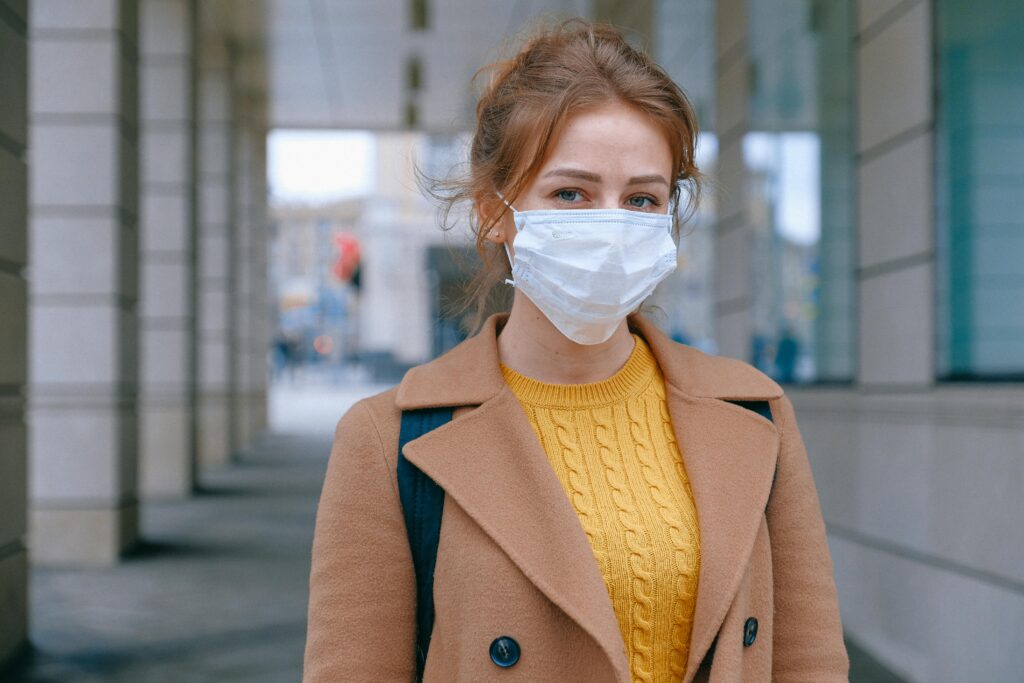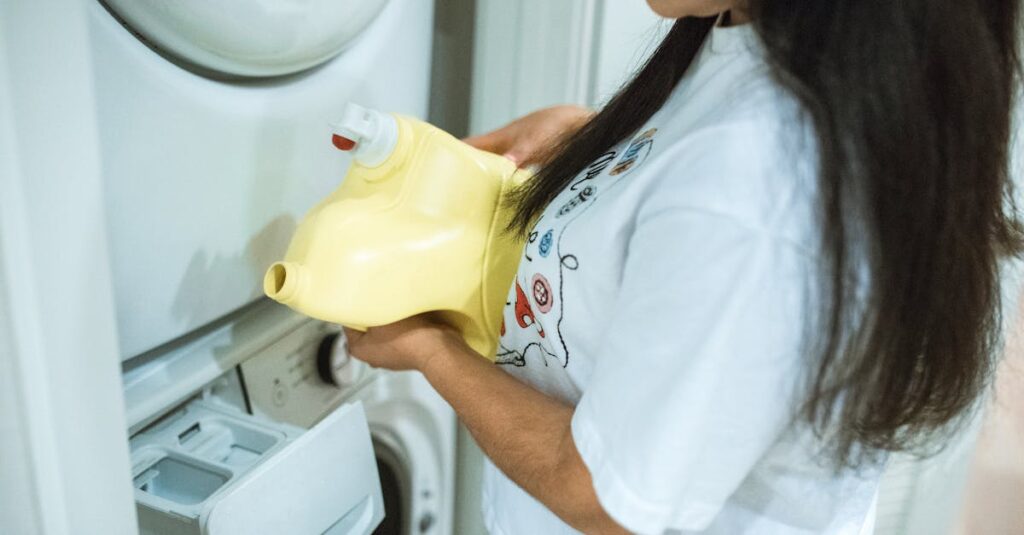For over a year, I kept telling my primary care doctor that fragrances and perfumes were making me extremely sick — migraines, nausea, brain fog, feeling like I was being poisoned.
And for over a year, she kept telling me, “That’s not possible.”
“It’s just in your head.”
“You must be anxious.”
Every time she dismissed me, it chipped away at me a little more. I knew what I was feeling was real. I knew I wasn’t imagining it.
But when a medical professional — someone you’re supposed to trust — keeps telling you you’re wrong, it messes with your mind.
I started doubting myself.
I started wondering if maybe I was crazy.
Still, deep down, I knew my body wasn’t lying to me.
Finally, after pushing for over a year, she agreed to refer me to an allergist.
I already knew it wasn’t going to be a classic allergy (like pollen or pet dander), but I went anyway. I needed to rule it out — and honestly, I needed to prove to myself and to her that something real was happening.
At the allergist appointment, I finally heard the words I had been longing to hear:
“You don’t have traditional allergies, but you do have chemical intolerance.”
She told me she’s seeing more and more people like me.
People whose bodies react strongly to fragrances, chemicals, and environmental exposures that others don’t even notice.
(If you want to learn more about Multiple Chemical Sensitivity (MCS), WebMD provides a helpful overview.)
She referred me to a neurologist, just to cover all bases.
And at the neurologist’s office, it happened again:
He looked at me and said:
“You wouldn’t believe how many patients I see who come in with migraines triggered by fragrances.”
I wasn’t crazy. I wasn’t making it up.
And I wasn’t alone.
That moment — that validation — changed everything.
How To Be Heard (Even When People Dismiss You)
Then include something like:
- Name the pattern (dismissal) in one sentence
- State impact (what happens to your body)
- Make a clear request (what you need)
- Offer options (2–3 accommodation alternatives)
- Set a boundary (what you’ll do if it continues)
Here are a couple of mini scripts:
Doctor script:
“Strong fragrances reliably trigger migraines/nausea/brain fog for me. I’m asking that we document this sensitivity and plan care that avoids triggers.”
Work/church script:
“I can participate if the space is fragrance-reduced. Could we try a fragrance-free section or a reminder sign? I’m not asking for perfection—just basic access.”
If dismissed:
“I understand this isn’t common, but the impact is real. Can we note this in my chart and discuss reasonable accommodations anyway?”
Why Being Heard Matters So Much
When you’re living with an invisible illness like chemical intolerance or fragrance sensitivity, the hardest part isn’t just the symptoms.
It’s the loneliness.
The disbelief.
The way people roll their eyes or act like you’re being dramatic.
The way doctors shrug and tell you it’s all in your mind.
Being heard, believed, and validated is a huge part of healing.
Not just physical healing — but emotional and mental healing too.
We don’t need pity.
We don’t need people to “fix” us.
We need to be seen. We need to be heard. We need to be respected.
When a doctor, a friend, or even a stranger says,
“I believe you. I see you. Your experiences are real,“
it breathes life back into you.
It reminds you that you’re not invisible. You’re not alone.
(If you struggle with migraines caused by fragrances, you’re not imagining it. The Mayo Clinic acknowledges that strong odors, including perfumes, can trigger migraines for many people.)
How We Can Help Others Feel Heard and Validated
If you’ve been through this journey, you already know how powerful validation is.
Imagine if we could be that voice for someone else.
Here’s how we can start:
- Believe people when they share their health struggles. Even if you can’t see it. Even if you don’t understand it.
- Listen without judgment. Don’t minimize or brush off what they’re telling you.
- Share your story. The more we talk about chemical intolerance and fragrance sensitivity, the less “weird” or “unheard of” it becomes.
- Support fragrance-free spaces. Advocate gently but firmly for fragrance-free policies, just like we now have smoke-free zones.
(For a deeper dive into environmental illnesses like MCS, check out this NIH review on Multiple Chemical Sensitivities.)
If you’re interested, you can also check out my other posts about small ways to create a fragrance-free environment in your home.
Spreading Awareness and Creating Change
We’ve seen it happen before:
Years ago, smoking indoors was normal. No one thought twice about it.
Now? It’s banned in most public places.
Why? Because people spoke up. Because awareness spread. Because enough voices said, “This isn’t safe for everyone.”
We can do the same thing with fragrance and chemical sensitivity.
Imagine schools, hospitals, workplaces, and public spaces that have fragrance-free zones.
Imagine not having to worry about getting a migraine from standing in line at the store.
Imagine being able to go to a doctor’s office or a church service without being assaulted by chemical scents.
It starts with awareness. It starts with us.
When we share our stories — even when it’s hard, even when it’s vulnerable — we help create a world where people like us are not sidelined or silenced.
We create a world where health, safety, and respect are available to everyone.
(There’s growing evidence that chemical intolerance could involve the nervous system too. Read what the Environmental Health Perspectives journal says here.)
If You’re Struggling Right Now…
Please hear me:
You are not crazy.
You are not overreacting.
You are not alone.
You deserve to be heard. You deserve safe spaces. You deserve to feel well.
And I’m here — building a community where we can heal together, where invisible illnesses are seen, and where we lift each other up.
Let’s keep speaking.
Let’s keep sharing.
Let’s keep building a better, safer world — for all of us.
Additional Resources:
- Chemical Sensitivity Overview (WebMD)
- Migraines and Smells (Mayo Clinic)
- Multiple Chemical Sensitivities Research (NIH)
- Chemical Intolerance and the Nervous System (EHP Journal)
Some of my other Blog Posts:
- Can Clothes Make You Sick? The Hidden Dangers of Toxic Fabrics
Your skin is your largest organ—what you wear matters. Learn how everyday fabrics could be quietly harming your health. - Toxic Ice Cream Ingredients to Avoid (MCS, Migraines, Inflammation)
That innocent scoop might not be so sweet. Find out which ingredients can trigger inflammation, gut issues, and more. - When Scents Make You Sick: Living with MCS in a Scent-Soaked World
If fragrance gives you headaches, nausea, or fatigue—you’re not alone. Discover how to survive (and thrive) with scent sensitivity.



